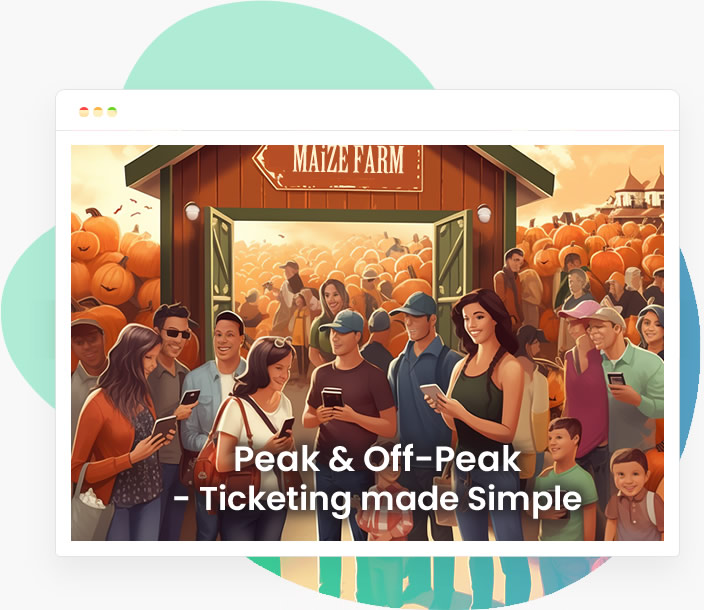Client Highlights
July 4, 2022 - Posted in Editors pick, Event Planner
Your CRM as an Event Planning Tool: 4 Insights
Dedicated event management software will likely be one of the first tools your nonprofit considers as it will equip you with the features you need to host your event. Ultimately, your nonprofit CRM software will work alongside other tools, like your ticketing software, to create a more holistic event management strategy.
To help you understand your CRM’s role in nonprofit event planning, this article will explore four specific aspects of event management that it can help with, including:
- Event Marketing and Communication
- Registration Pages and Guest List Creation
- Volunteer Management
- Follow-Up Planning
As the central hub of your nonprofit’s tech stack, your CRM will likely also be integrated with a number of other tools that will help with your event planning—maybe even including your event hosting software. Make sure all of your event management tools are integrated so data from one solution will easily flow into your CRM, making it the one-stop location for all of your event planning.
1. Event Marketing and Communication

Even the most well-planned event will only be successful if supporters know about it and buy tickets. Your CRM’s communication tools are essential for your event marketing campaign, allowing you to reach out to all of your supporters at once to promote your event.
Additionally, your CRM’s donor data will enable your team to identify and target a specific audience for your event, leading to more effective marketing appeals. For instance, using your CRM, you can:
- Create personalized messages. When you’re trying to attract a crowd of guests, it can be easy to think of your potential attendees as a crowd. However, personalizing each message to address them by name and reference their personal interactions with your nonprofit can go a long way toward convincing them that your event is something that uniquely fits their interests.
- Track engagement rates. How effective are the messages you’re sending supporters? Your CRM’s communication tools should allow you to track how supporters respond to your messages. This includes email open rates, which landing pages are attracting traffic, and which channels are garnering the most engagement. Consider creating multiple versions of the same message and using your CRM to compare their results to find the most effective marketing strategy for your event.
- Identify attendance trends. One of the first steps in creating your event marketing strategy should be analyzing your last event’s strategy and results. Take the time to review which supporters attended previous events, what your messages’ engagement rates were, and any other significant trends.
If your nonprofit is planning a hybrid or in-person event, you can also use your CRM to identify which supporters it make sense to send invitations to. For example, if a supporter lives in a different state than your event’s venue, you should send them an invitation that stresses their remote attendance options instead of sending a boilerplate invitation to everyone, regardless of location.
2. Registration Pages and Guest List Creation

Some CRMs have robust event management features or integrate with event registration tools that allow them to create registration pages, sell tickets, and create guest lists. These features can shape both how your team plans your event and how supporters engage with it. Ensure that your CRM allows you to plan your event so you can:
- Invite the right supporters. While you should host a variety of events for all of your supporters, it’s not necessary to invite every supporter to every event. For example, a community picnic will likely have a much more open guest list, while still being somewhat exclusive to supporters who live nearby. By contrast, a legacy event for your major donors will have a carefully curated guest list, and you’ll need to make additional considerations, such as who qualifies as a major donor or if you should invite prospective major donors, as well.
- Create a streamlined registration process. Your marketing campaign to encourage guests to sign up for your event can eat up a lot of your time and resources. Ensure that when prospective attendees reach your sign-up page that your registration form makes attending easy, rather than being one more obstacle they need to overcome. Embed your form into your website to keep your branding consistent, only ask relevant questions, and ensure information from your event registration forms flows smoothly into your CRM.
- Track attendance. Knowing how many people you can expect at your event is essential for your planning team, which means you will need to get an accurate attendance estimate relatively quickly while still giving guests plenty of time to sign up. Get your registration page up and running early so your planning team can make accurate assessments for essentials such as venue space, catering, and even prizes depending on the type of event.
If your CRM doesn’t have built-in registration or ticketing software, look for third-party solutions that will integrate with your system. Additionally, set up your registration process so guests can sign up and purchase their tickets all at once, rather than needing to re-enter their personal and financial information later.
3. Volunteer Management

Your guests aren’t the only people you’ll need to track and manage during your event. Whether you only have a few or several dozen, volunteers are often essential to ensuring your events run smoothly. Your CRM can help you manage many key processes of your volunteer program during your event by enabling you to do the following:
- Track volunteer applications. Sometimes volunteers will need to go through a number of steps before they can start working with your organization. Your CRM can help you create profiles for each of your volunteers, allowing you to track where they are in the application and training process.
- Maintain communication. Just like with your donors, you should strive to maintain regular contact with your volunteers, and your CRM can help you do just that. Create an email series for your volunteers, and use the data you have stored in your CRM about them to personalize each message.
- Build relationships with volunteers. While a few volunteers may be interested in working with your nonprofit for only one or two events, the right management practices can help you build long lasting relationships with many of your volunteers. Mobilize’s guide to volunteer management specifically recommends finding ways to empower your volunteers by directing them to training opportunities and generally listening to their interests when it comes to working with your organization. Use your CRM to take note of any feedback your volunteers give you and consider how you can work it into their experience.
Your CRM can also handle a number of other basic tasks for managing your volunteers, such as offering a centralized location where you can store volunteers’ records, note which volunteers have finished their training, and assign volunteers specific shifts. Additionally, if your volunteers are using any online fundraising tools during your event, such as peer-to-peer software, you can take note of it your CRM and use it as a hub to stay up to date on their activities.
4. Follow-Up Planning

Your event isn’t over until you’ve completed your follow-up steps, and in some cases, this can even be the most important part of your event. Your CRM will provide you with the tools you need to manage every aspect of your event follow-up, such as how to:
- Track conversions. Rarely will just attending the event be your sole goal for guests. After your event, check whether guests took next steps toward becoming a long-term supporter. This might include making a donation, buying your merchandise, or even just signing up for your newsletter. For guests that haven’t yet converted, your follow-up thank-you emails can be an opportunity to encourage them to do so if they enjoyed your event.
- Thank attendees and sponsors. After your event wraps up, each of your guests should look forward to receiving a thank-you message for attending either in their email, in the mail, or both. Your CRM can help you manage these conversations, create templates, and take note of how the overall experience went for important donors or sponsors who provide feedback.
- Review your data. As mentioned, one of your best resources for planning your next event is data from your past events. Check to see how your event performed compared to your goals, analyze any trends across events, and identify aspects where you succeeded and where you fell short.
This may sound like a lot to manage, especially in the wake of what could be several months of intensive event planning. Fortunately, if your CRM has smart technology, many of these processes can be automated or even analyzed for you.
Salsa’s guide to Smart Engagement technology outlines how these tools can be used for managing your data on both an organizational and campaign level. For your events, you will likely need to look at your data from both levels in order to understand how your event’s performance fits into your overall fundraising strategy and if it made any impact on individual supporter relationships.
Planning an event can be a time-consuming process, but fortunately, your nonprofit has a variety of tools to help, including your CRM. Put your CRM to use during your event planning as a tool that can help your team track key data, communicate with volunteers, and improve the overall event experience for guests and your team.
All of this for just $0.79 + 2% per attendee
Zero up-front cost, with a low rate fee of $0.79 + 2% per ticket. Seamless integration with Square, Stripe, PayPal, Authorize.net, and more. And instant payment means no waiting for payouts by check.
Yes, ticketing can be this simple… With SimpleTix.





